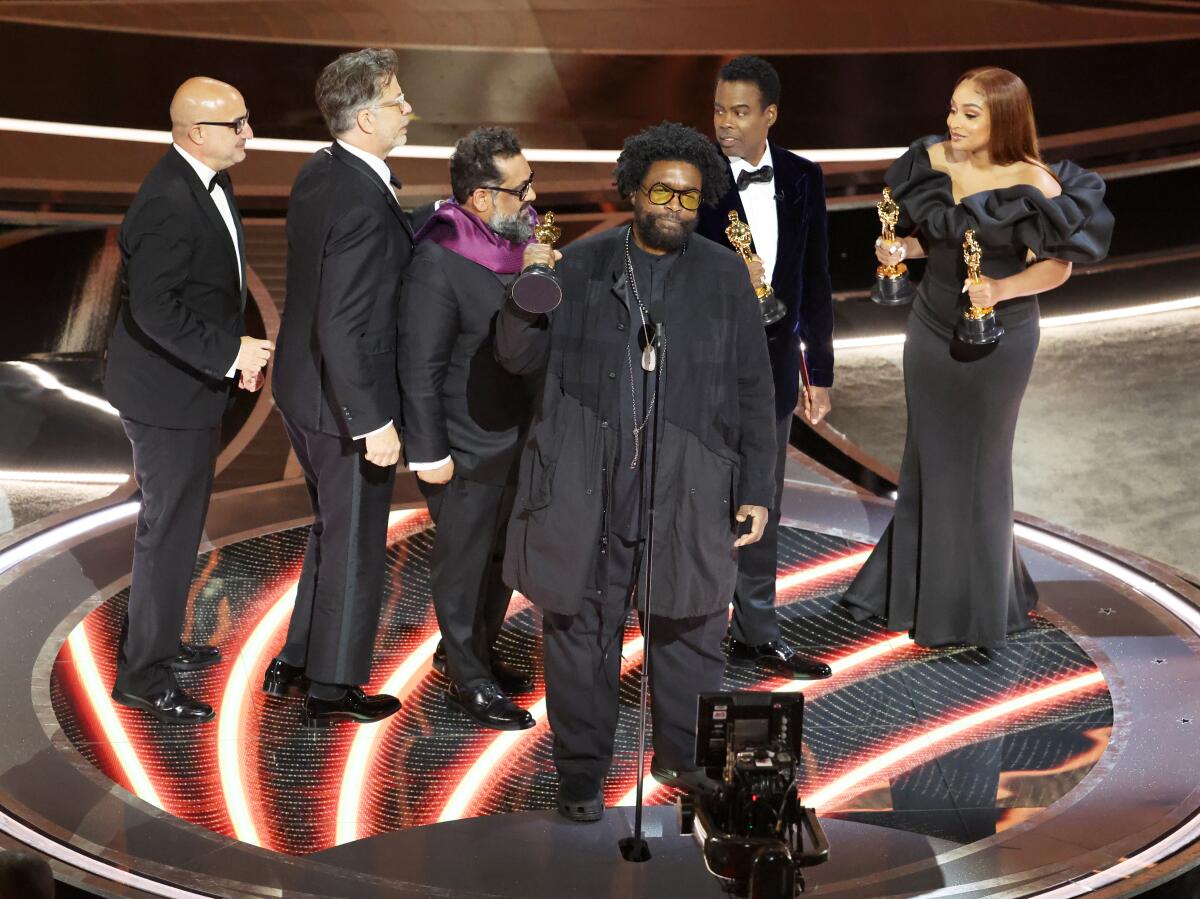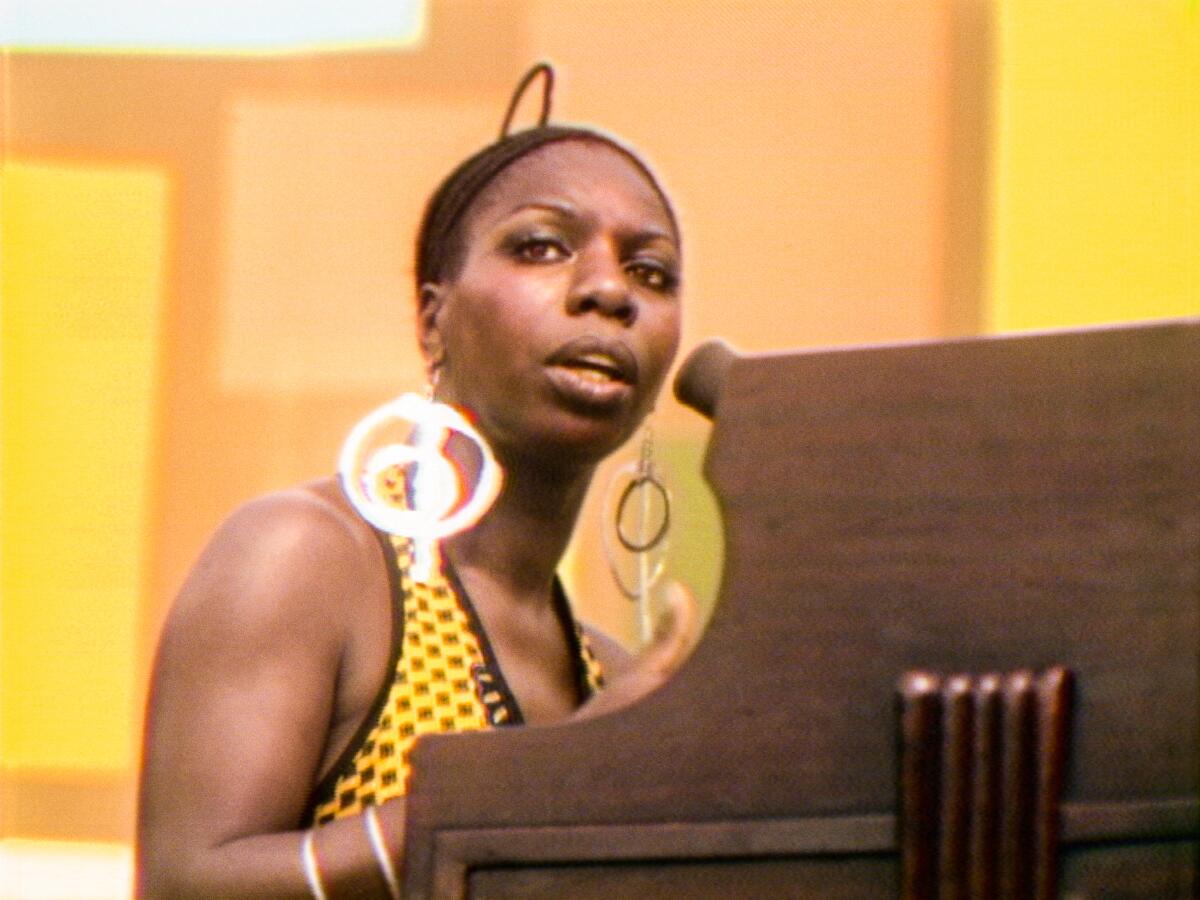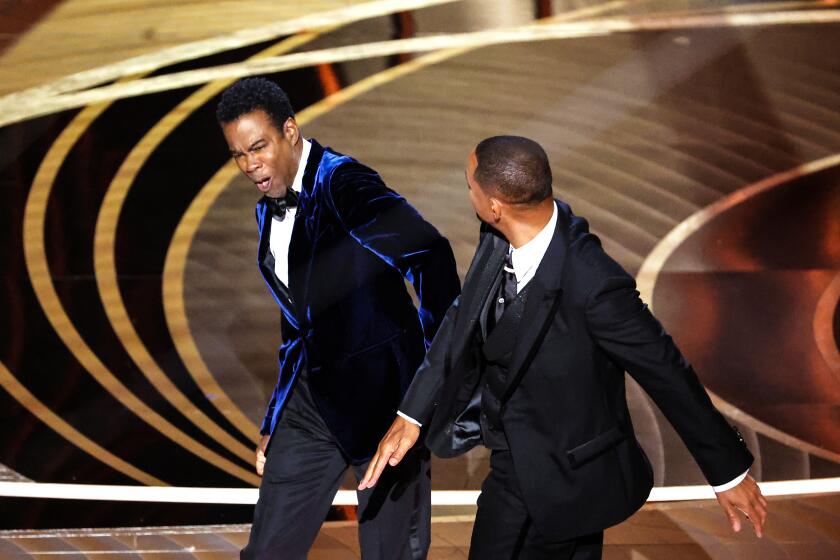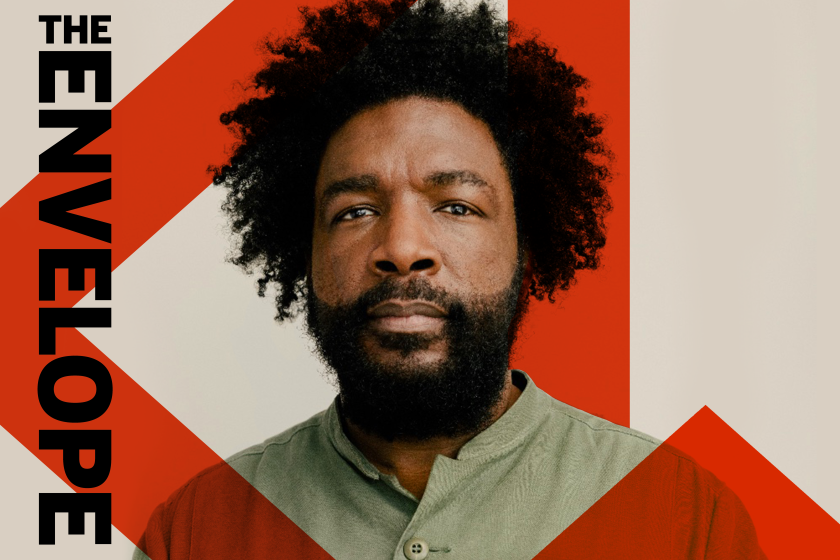How Questlove’s ‘Summer of Soul’ win got lost in Oscars’ ugliest moment

The winner of this year’s Oscar for documentary feature was “Summer of Soul ( … or, When the Revolution Could Not Be Televised),” Ahmir “Questlove” Thompson’s sublime, ecstatic film about the 1969 Harlem Cultural Festival. Few were surprised; even fewer seemed to take notice. For those in the Dolby Theatre and those of us watching at home, Questlove’s speech was drowned out amid the shock and confusion of perhaps the ugliest moment ever to play out during an Academy Awards telecast.
Had we all really just seen Will Smith, beloved movie star and bet-the-farm favorite for the lead actor Oscar for “King Richard,” strike Chris Rock onstage, and then curse him out from his seat, after Rock made a crude joke about Smith’s wife, Jada Pinkett Smith? (We had.) Would Smith be asked to leave or charged with assault, or would he be allowed to stay and accept the Oscar everyone knew he was momentarily about to win? (The latter.) If the film academy and ABC wanted to make the Oscars must-see TV again, was this what they’d had in mind? What’s the opposite of an #OscarsCheerMoment?
The day after a night of historic wins, everyone’s talking about Will Smith slapping Chris Rock at Sunday’s Oscars. Here’s how the drama unfolded.
The seeming incomprehension of those in attendance, their mix of nervous laughter and applause, made it even worse. For sheer what-just-happened insanity, what past Oscar snafu could begin to compare? The “La La Land”/“Moonlight” mix-up from 2017? That was stomach-churning in its own way, but it was also a moment where grace ultimately won out, where well-intentioned people who respected one another tried to lift each other up and assuage their feelings of shock and hurt. There was no grace in this moment.
Smith did strive for grace later, during his acceptance speech. With tears streaming down his face, he invoked his real-life character, Richard Williams, the father of Venus and Serena Williams, describing him as “a fierce defender of his family.” He said, “I know, to do what we do, we got to be able to take abuse. You gotta be able to have people talk crazy about you. In this business, you gotta be able to have people disrespecting you and you gotta smile and pretend like that’s OK.” He said what Denzel Washington had told him during a commercial break: “At your highest moment, be careful, that’s when the devil comes for you.” He said he wanted to apologize to the film academy and his fellow nominees. (He didn’t apologize to Rock.) He ended his speech: “Love will make you do crazy things.”
It felt honest, wrenching, defensive, confessional — and crushingly inadequate. Smith’s pain was itself painful to see, the parts of it he exposed and the parts of it he didn’t. In one moment, he’d ruined the greatest night of his career and possibly the greatest night of his fellow winners’ careers. The Oscars telecast may have suddenly become newsworthy again, but the Oscars themselves — the winning performers, artists and films — all but faded into insignificance.
Gone was the possibility that one of the evening’s most noteworthy achievements — two actors of color, Smith and Ariana DeBose (“West Side Story”), winning Oscars the same night — might lead the next day’s headlines. Gone, too, amid the lingering rawness and ugliness of the initial assault, was the glorious moment that “Summer of Soul” and Questlove and his producers, Joseph Patel, Robert Fyvolent and David Dinerstein, deserved.

“Summer of Soul’s” win was one of the worthiest of the night, and Questlove proceeded to give one of the evening’s most beautiful speeches. Replaying that moment, you had to wonder what must be going through his mind as he made his way to the stage, hugging many congratulators, including Will Smith, before accepting his trophy from Rock. If the debacle had distracted him, it didn’t show; he focused on what mattered, the reason he was there.
He began by graciously singling out the “powerful work” of the other nominated documentaries by name: “Attica,” “Ascension,” “Flee” and “Writing With Fire.” He became choked with emotion as he acknowledged his “beautiful mother,” Jacquelin Thompson, weeping from her seat in the crowd, and his late father, the doo-wop singer Lee Andrews.
Just moments after slapping presenter Chris Rock hard on live television, Will Smith found himself in tears as he gave his acceptance speech for winning the Oscar for best actor for his performance in “King Richard.”
He talked about what the Harlem Cultural Festival, often referred to as “Black Woodstock,” should have been, a national phenomenon, something his parents should have taken him to when he was 5 years old. It was the festival’s lost legacy that “Summer of Soul” — painstakingly and brilliantly constructed from 40 hours’ worth of festival footage that had sat, unedited and unaired, in a basement for half a century — had gone some distance toward restoring.
“This is such a stunning moment for me, right now,” he said, before immediately adding, “This is not about me. This is about marginalized people in Harlem that needed to heal from pain.”
It wasn’t about him, but we needed him all the same. This was “Summer of Soul’s” moment to shine; it didn’t get it, but it shone anyway. A great film, one that immortalized a transcendent musical spectacle of Black joy, was cast aside by a queasily intimate spectacle of Black pain and anger. But if that was one of the night’s many injustices, it also provided one of its few redeeming, even clarifying moments. Maybe here, in Questlove’s words, was a measure of the grace we were looking for. In time, we’ll be able to return to that moment and appreciate it, give it its due. But we couldn’t last night.
Ahmir “Questlove” Thompson on how sifting through 40 hours of archival footage of the 1969 Harlem Cultural Festival led to his directorial debut, ‘Summer of Soul.”
More to Read
Only good movies
Get the Indie Focus newsletter, Mark Olsen's weekly guide to the world of cinema.
You may occasionally receive promotional content from the Los Angeles Times.













